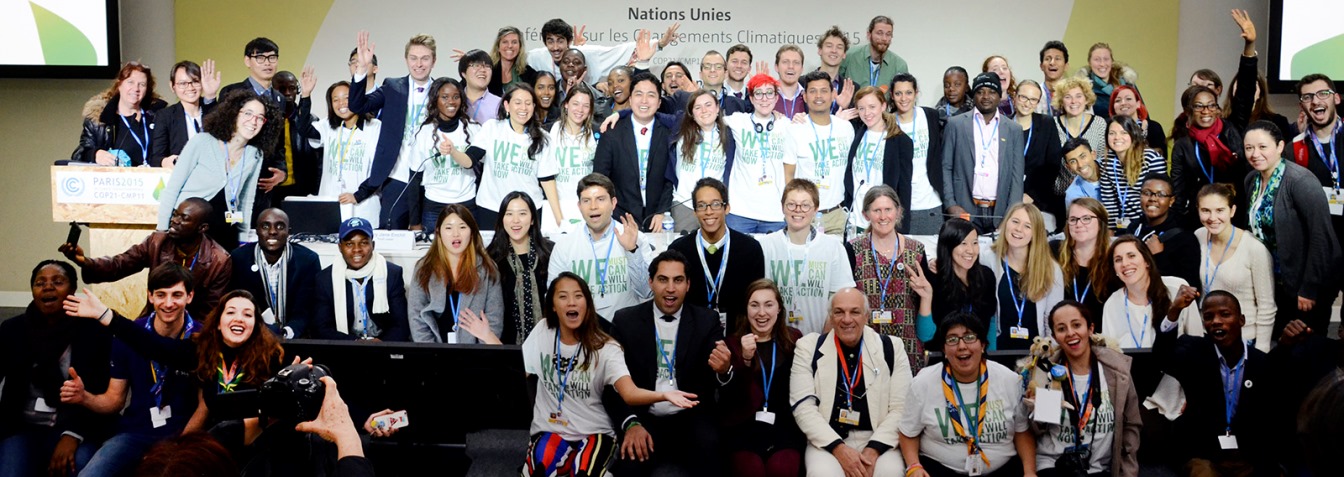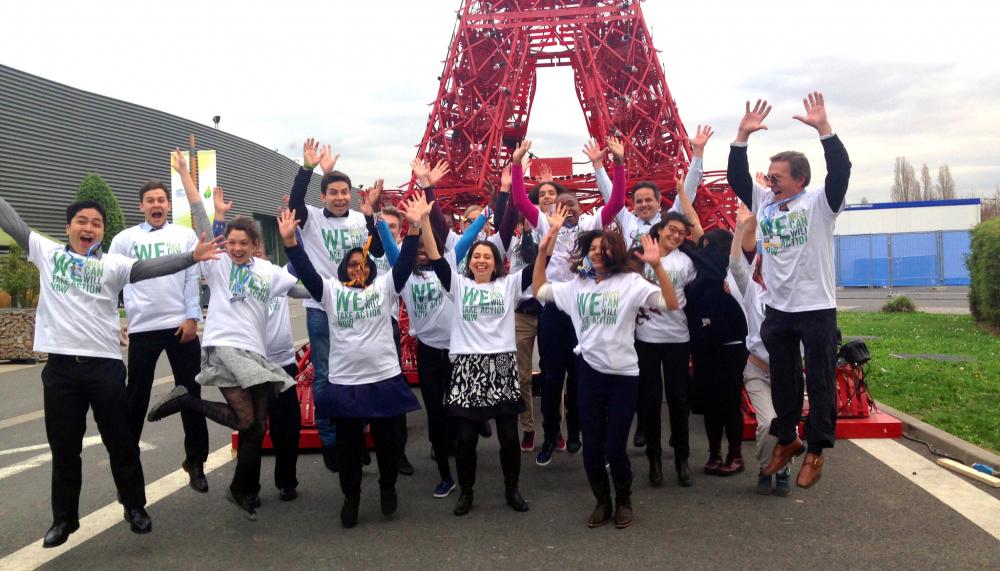
Last December, 195 countries reached an unprecedented agreement on climate change. Now that three months have passed since this victory, parties are faced with another, perhaps greater challenge: ensuring the implementation of the pledges made at the summit, now that the media spotlight and public attention has moved to other issues.
Bottom up initiatives will be crucial to achieving the goals set by each party, as climate change is a global challenge with local roots. Global youth have become a key actor at the local level, inspiring communities around the world to adopt environmentally friendly ways of living. All over the world, youth initiatives have grown, driven by determined young people eager to support climate action and have their say in COP negotiations.
This eagerness to impact change and be involved in deciding the future of our planet inspired Fannie Delavelle to set up an initiative aimed at bringing the voice of the global youth to the climate negotiations.
Young people from all around the world were invited to send her questions about climate change. She got lots of replies from every corner of the world: from Ethiopia to China, from Peru to Bulgaria, from the US to Australia, young professionals responded enthusiastically.
During the second week of COP21 in Paris, she asked high-level participants such as Rachel Kyte - CEO of Sustainable Energy for All and former Vice President of the World Bank- to answer their questions.




